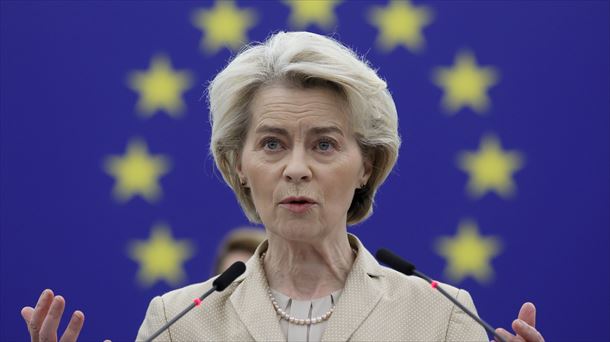The European Union (EU) Fisheries Ministers have reached an early agreement on next year’s fishing quotas. The Basque government’s director of fisheries, Leandro Azkue, has read the agreement as “bittersweet” because it favors the coastal fleet, but not so much the offshore fleet.
Fisheries ministers of the European Union (EU) succeeded this morning in unanimously reaching an agreement on fishing opportunities in the community waters of the Atlantic Ocean and the Mediterranean Sea in 2025. Cantabrianyou can fish a lot more chicharro And less green.
The Spanish Minister of Agriculture and Fisheries, Luis Planas, appeared this morning to explain the quotas in more detail. Planas believes that the “result is positive” for Hego Euskal Herria’s leases. On the other hand, the assessment of the Director of Fisheries of the Basque Government, Leandro Azkue, was “bittersweet”, as the quotas, while beneficial for the coastal fleet, are not for the boats fishing on the high seas.
Increases for coastal boats
Boats off the coast will keep the share of southern hake (10,953 tons, almost the same as in 2024), the snuff (4,340 tons, an increase of 16.8%), and that of rooster (3,942 tons, 22.8% more than in 2024).
The increase of chicharro will be remarkable, until three or fourfold the amounts, after years of “zero quotas”. In concrete terms, there will be a total of 6,719 tons, which means a “relief” for the Cantabrian fleet.
It is expected that the share of the Cantabrian anchovies remains at the current 33,000 tonnes, although the recommended scientific TAC for 2025 has not yet been published. In general, the agreement is in favor of the coastal fleet, with the exception of the DivideThat decreases your quota a 21.97% (21,718 tons), due to the poor situation of the species.
The deep-sea fleet, the worst hit
The allowable catches of the deep-sea fleet, for example that of Ondarroa (Bizkaia), will be reduced. In the case of the northern hake The decrease will be smaller than expected (the Commission has proposed a 30 percent reduction) and ultimately remain at a decrease of 30% 20%. Also will descend the allowable catches for the snuff (1.28%)the rooster (8.92%) and the blue whiting (5.41%).
Negotiations over the negotiations have been “long and complex.” Mediterranean Sea Western, as admitted by the new fisheries commissioner, Costas Kadis. The governments of Spain, France and Italy have concentrated their efforts on preventing a drastic reduction in the working hours of the fleet of drag. The Commission has proposed reducing this to 27 days per year. Finally, a compensation mechanism has been agreed whereby fishermen must commit to “selective” fishing (the ability of fishing methods to select the desired fish and size) and to the use of “innovative” fishing tools. If they stick to the agreement, they will benefit from a “substantial” increase in the number of days they go out to sea to fish.
Source: EITB
I’m Wayne Wickman, a professional journalist and author for Today Times Live. My specialty is covering global news and current events, offering readers a unique perspective on the world’s most pressing issues. I’m passionate about storytelling and helping people stay informed on the goings-on of our planet.



